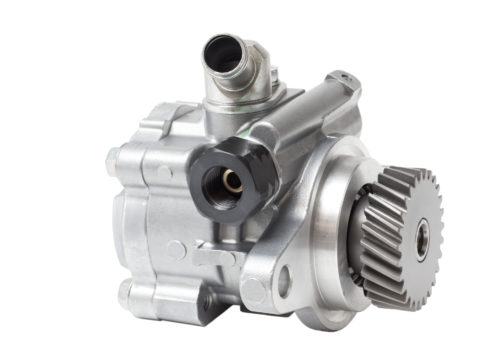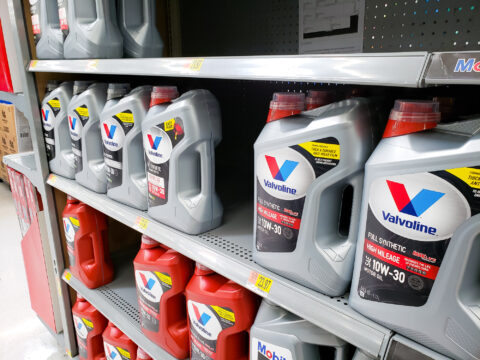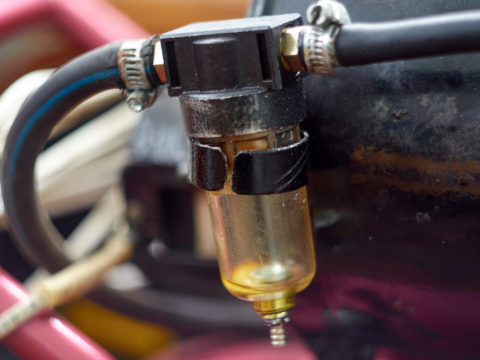Whether you drive a used car, brand new car, truck, compact car, or anything in between, motor oil is necessary for a vehicle to run well. Oil protects your car’s engine, and there are additives to improve your car’s function further.
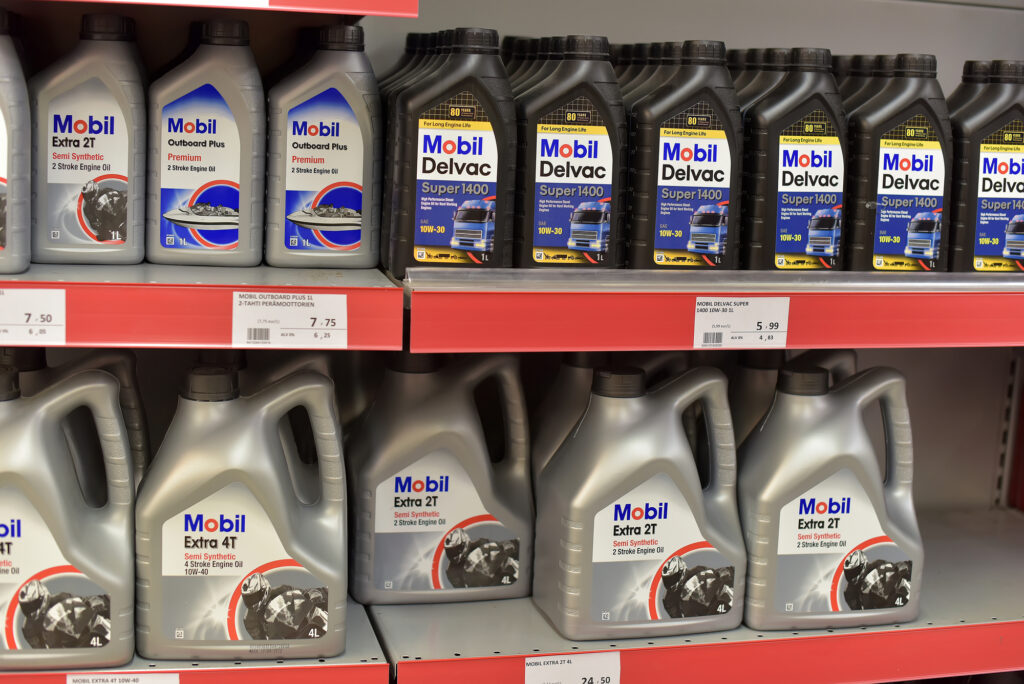
There are several oil companies out there, and each one is a little different from the others despite providing motor oil to people. Different oils have different ingredients and uses that are important to know before you choose an oil for your car.
Liqui Moly and Castrol Motor Oil are two of the most popular oil companies worldwide. Both are solid options, but they have differences that are worth knowing before choosing one for your car.
Let’s compare Liqui Moly and Castrol to decide which option is the best option for you.
Contents
About Liqui Moly Oil
Liqui Moly is an oil company that opened in 1957 in Germany. They’re known for their motor oils, additives, and lubricants. While they have over 4,000 different products, they’re best known for their vehicle oil with MoS2.
Liqui Moly is a leading oil company throughout the world. They’re the most popular in Germany, where they’re from, but you can find their products in over 120 countries worldwide.
About Castrol Oil
Castrol is an oil company originating in Britain back in 1899. They didn’t launch their first motor lubricant until 1906, but their oil is their top-selling product. They’re an internationally recognized company, and people in over 120 countries can purchase its oil for vehicles.
They’re a top-rated oil company and are known for their high-quality products in several countries. Since the BP company purchased Castrol in 2002, they’ve risen in the ranks of popularity in the United States.
Similarities Between Liqui Moly and Castrol Oils
There are quite a few things to love about both Liqui Moly and Castrol oils, so let’s take a look at the five main things that the two products have in common.
They Both Offer Synthetic Oil
A fundamental similarity between Liqui Moly and Castrol is that both oils are synthetic. Synthetic oils are ideal because they last longer than traditional oil and provide a sufficient amount of lubrication for your vehicle. They ensure that they offer customers high-quality synthetic oil in addition to their others, which not all oil companies do.
You Can Access Both Oils in the Same Countries
Another similarity between these two oils is that they’re available in many of the same countries. While each is more popular in their country of origin, if you live in the United States, you can easily access both oils and choose the best option for your situation.
You Can Use Them in Petrol, and Diesel Vehicles
Not all oil can be used in both petrol and diesel cars, but Liqui Moly and Castrol oils can. If you like one brand over the other, you can switch brands if you’re changing from a gasoline to a diesel car or vice versa.
Oil Change Intervals
Since Liqui Moly and Castrol offer synthetic oils, their oil change intervals are similar. For the most part, you can go between 10,000 to 15,000 miles before bringing your car in for an oil change when using either brand’s synthetic oil.
Remember that oil change intervals will vary depending on where you live and your driving conditions. Someone in harsher conditions might need to get their oil changed more often than the same person using the same oil in another area.
Customer Reviews
Lastly, the customer reviews are a considerable similarity between the two oil companies. Not only are there a substantial amount of reviews for Liqui Moly and Castrol, but many of the reviews are of similar quality. For both oil companies, roughly 90% of all their customer reviews are considered positive.
Liqui Moly vs. Castrol Oil Features Comparison
While there are a lot of similarities between the two oil companies, let’s compare them based on where they’re from, the type of oil, and more.
Liqui Moly vs. Castrol Manufacturer
The Würth Group owns Liqui Moly as of 2018 when the group purchased the remaining shareholdings from the previous CEO. Castrol is a company that Burmah Oil originally owned in 1966, so it was Burmah-Castrol, and then they merged with BP in 2000.
Liqui Moly vs. Castrol Country of Origin
Another difference between these two oil companies is their country of origin. While both are from Europe, Liqui Moly is a German oil company, while Castrol is a UK-based oil company. Luckily, despite their countries of origin, you can access both oil products in several of the same countries around the world.
Liqui Moly vs. Castrol Type of Oil
While most people choose either brand for their synthetic and synthetic-blend oils, they offer other types too. Liqui Moly and Castrol both offer mineral, semi-synthetic blends, and synthetic oils to customers.
Each one is better for specific vehicles, and you can use their website or speak with a mechanic to understand which one will be the best oil for your car.
Liqui Moly vs. Castrol Oil Model
The models between Liqui Moly and Castrol Oil have similarities but are different enough to note. Each company uses as environmentally friendly practices as possible to bring oil to those who need it for their vehicles and other motorized vehicles.
They source their oil from pure sources and ensure they’re up to their purity standards. Liqui Moly and Castrol oil have slightly different purity levels, but their models and mission are to provide excellent oil to people worldwide.
Liqui Moly vs. Castrol Viscosity
Oil viscosity is how people measure how easily it is to pour oil at specific temperatures. The thinner the oil, the lower the viscosity; therefore, it will pour easier at lower temperatures than thinker oils with high viscosity.
A lower viscosity helps your engine run better, and both oil brands come with several oils that have a solid viscosity grade.
Liqui Moly offers oils that have viscosity grades of 5W-30 and 5W-40. If you’re driving a BMW and need BMW-approved oil, the only one they officially approve of is the 5W-40.
Castrol oil has many more options when it comes to good viscosity grades. You can choose from 5W-30, 5W-40, 0W-20, 0W-30, and 0W-40. The best part about Castrol’s options is that every one of those oils is approved for use by BMW, which is picky about which oils they recommend for prolonging the lifespan of their vehicles.
Operating temperature and viscosity go hand in hand. The preferred operating temperatures for a Liqui Moly oil are -20 degrees Celsius to 140 degrees Celsius. On the other hand, Castrol oils perform at their best in temperatures of -35 degrees Celsius to 150 degrees Celsius.
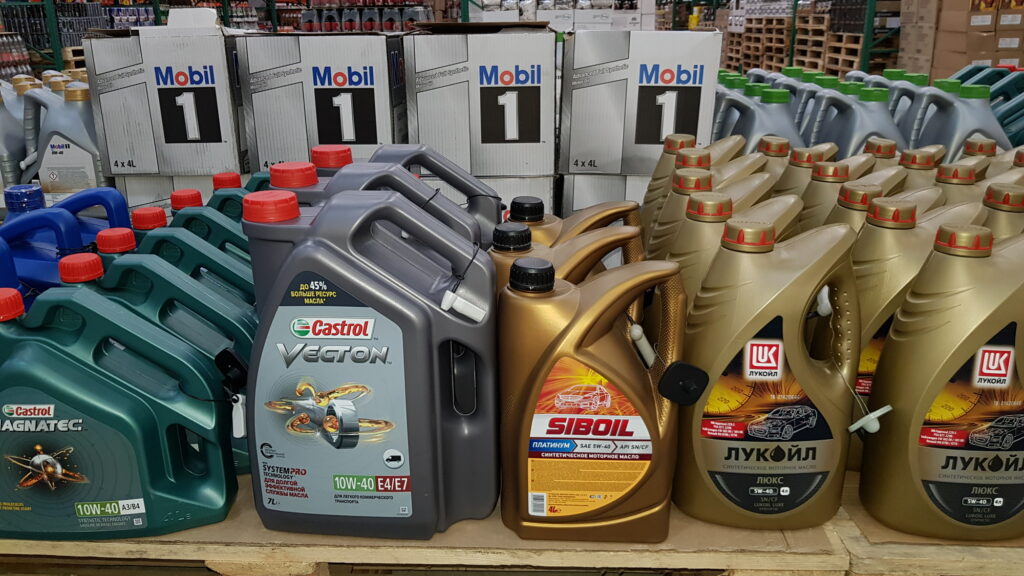
Liqui Moly vs. Castrol Recommendations Based on Usage
When comparing two motor oils, we can’t forget to discuss several main factors that can sway you to use one over the other. Knowing the price, how often you need to change your oil, and if there are any additives can help you choose the right oil for your vehicle.
Liqui Moly vs. Castrol Price
The cost of the oil will depend heavily on which specific oil you choose, the car you drive, and how often you’re getting your oil changed. For the most part, you’ll find that Liqui Moly oil is far more affordable than Castrol, which is one reason many people opt for oil from Liqui Moly.
Fuel Economy
Did you know the type and brand of oil you put in your vehicle can change your fuel economy? That’s why choosing an oil is something you don’t want to take lightly. Using an oil with a lower viscosity helps your engine run smoother and, therefore, increases your fuel economy.
While Liqui Moly and Castrol have similar viscosity in their oils, Castrol oil is slightly lower and will give you a better fuel economy than Liqui Moly in most cases.
Which One is Good for Engine Protection
Most people would argue that Castrol Oil is better for engine protection, and while it’s still an excellent option, Liqui Moly is also good for your car’s engine. Since both are good options, factoring in other things like how often you need to change the oil, the cost, etc., can help you make a more informed decision about which oil is right for you.
Castrol oil contains a zinc compound that most would say provides better engine protection than Liqui Moly oil. That isn’t to say that LIqui Moly can’t protect your engine well, especially when you choose one of their several oil additives to use.
Oil Changing Intervals
When you’re considering which oil to go with for your vehicle, considering how often you have to get your oil changed is important. With Liqui Moly and Castrol, you should be able to go about the same amount of time between oil changes, no matter which one you choose.
The synthetic oil options from both companies recommend an oil change every 10,000 to 15,000 miles and more often, if you’re considering using a non-synthetic oil.
If you’re looking to use one of their other oil types, not a synthetic option, their oil change intervals are every three months or 3,000 miles for conventional, and for a semi-synthetic oil, every 5,000 or so miles. Whichever way you slice it, the oil change intervals are comparable between Liqui Moly and Castrol Oil.
Oil Purity and Additives
Liqui Moly offers a variety of oil additives to help keep your engine running as best as possible. You’ll find around 29 different additive products to choose from depending on where you’re purchasing your oil additives. They have oil additives like valve cleaner, gasoline stabilizer, engine flashes, and more.
Many Castrol oil products contain an additive already that you don’t have to purchase in addition to the oil. Their oil contains zinc dialkyl dithiophosphate (ZDDP), which is a zinc compound. ZDDP is an excellent oil additive that helps protect your engine when driving in high-load areas.
Where there’s a massive difference between these two oil companies in assessing the additive options. Castrol has an excellent zinc compound in its oil, but if you’re looking for more products to improve your car’s performance, Liqui Moly has more oil additive options.
Liqui Moly vs. Castrol Pros and Cons Table Summary
Despite their similarities and differences, both companies have pros and cons. Here’s a quick glimpse at the main pros and cons of Liqui Moly and Castrol Oil.
| Liqui Moly | Castrol |
| Pros | Cons | Pros | Cons |
| It improves cold start behavior | It’s sticky | It helps combat engine sludge | Performance isn’t as great |
| Environmentally-friendly oil | The operating temperature is lower than Castrol | Castrol has a larger number of certified oils | It’s more expensive than Liqui Moly |
| Works in diesel and gasoline vehicles | Their oil includes things like anti-wear additives, antioxidants, and dispersants |
Is Liqui Moly or Castrol Good for Your Car?
Both oil options are suitable for your car. The thing to remember, though, is that each one is better for different reasons for your vehicle. For those who have a BMW, Castrol offers more oil that’s certified by BMW to be safe for your car, so going with Castrol might be a better fit for you.
Overall, both oil companies have high-quality oil that will do wonders for your car.
Can You Mix Castrol with Liqui Moly?
While you can mix the two, most people will tell you that you shouldn’t mix two different brands together. Mixing the two oil brands can cause issues for your car, so while there are different versions of each oil combined from the same brand, you shouldn’t mix Castrol and Liqui Moly.
Even though Liqui Moly is a great oil that you can typically mix with other types of oil, it’s only sometimes advisable to mix anything with Castrol oil. If you do this because you don’t have another choice, it might harm your car.

